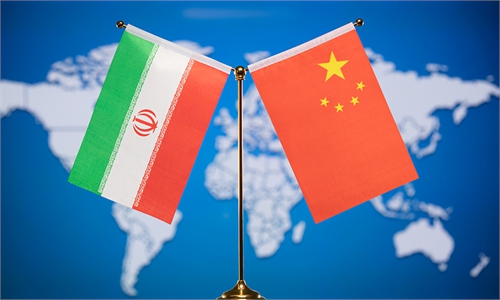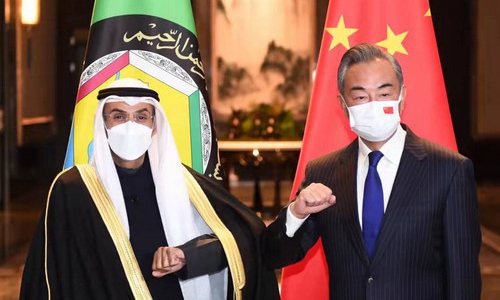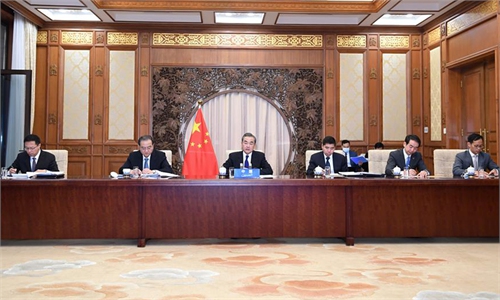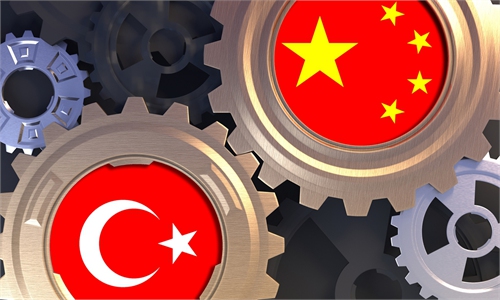Iranian FM visits China 4 days after GCC trip; China has no enemies, only friends in Middle East
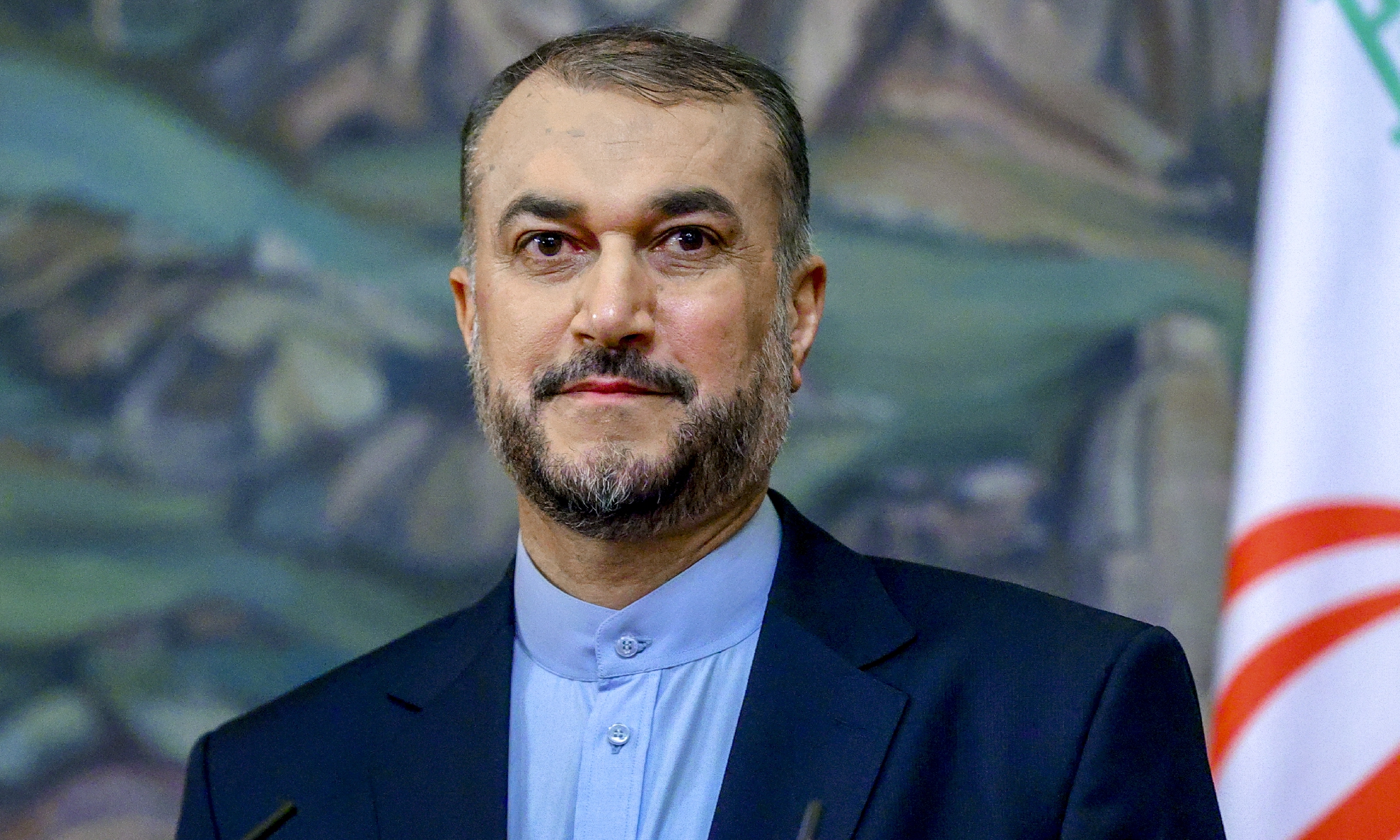
Iranian Foreign Minister Hossein Amir-Abdollahian Photo:VCG
Iranian Foreign Minister Hossein Amir-Abdollahian visited China to discuss the implementation of a bilateral comprehensive cooperation pact among other topics of shared interest on Friday, the same day when four Gulf Cooperation Council (GCC) countries' foreign ministers wrapped up their first-ever group visit to China, which started on Monday.
The extensive exchanges between China and the Middle East countries highlight China's special status — though the Middle East has been dubbed as a "powder keg" given geopolitical, religious, cultural and ethnic complexities in the region, China can maintain a positive relationship with regional countries because, "China has no enemies, only friends" in the Middle East, observers said.
The Iranian Foreign Minister published an article on the Global Times before his visit, where he wrote Iran and China, two great civilizations in West and East Asia, have enjoyed good, stable and strong relations throughout history.
The foreign minister also expressed high hopes for the two countries to continue their half century of diplomatic relations and continue to push forward cooperation in various domains, support each other in the international arena, and jointly protect multilateralism while opposing unilateralism.
In addition to detailed implementation of the 25-year cooperation plan China and Iran signed in March 2021, nuclear talks in Vienna and regional and international situations are also on the agenda, media reported.
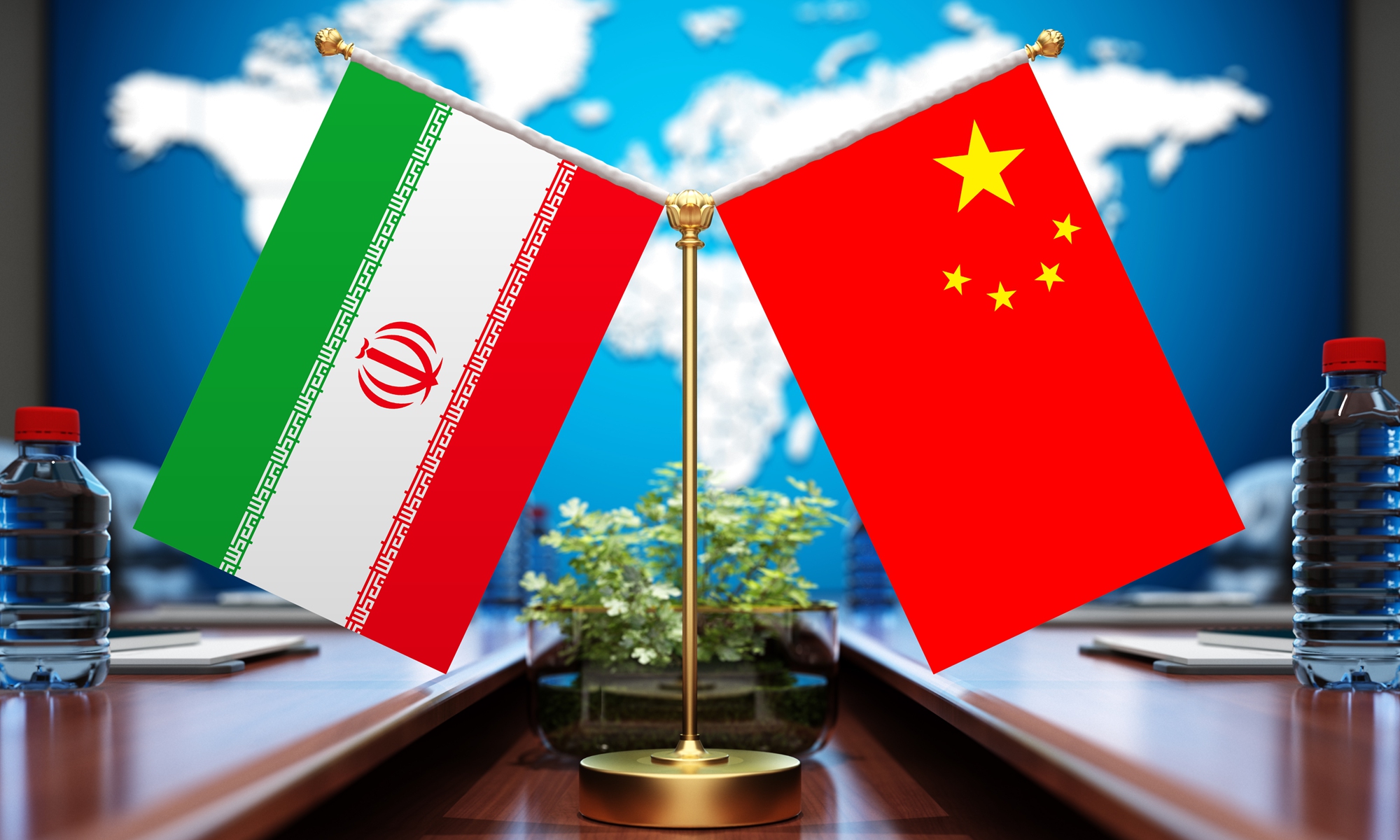
China Iran Photo:VCG
Also on Friday, foreign ministers of four GCC countries, Saudi Arabia, Kuwait, Oman and Bahrain, along with the Secretary-General of the GCC Nayef bin Falah al-Hajrah, wrapped up their five-day visit. Their unprecedented group visit led to a joint statement which pledged to establish a strategic partnership and promote free trade area negotiations.
As part of the latest China-Middle East interactions, Turkish Foreign Minister Mevlut Cavusoglu visited China on Wednesday and met with Chinese State Councilor and Foreign Minister Wang Yi. The two diplomats exchanged views on a range of topics, and Cavusoglu noted Turkey allows no terrorist activities that infringe on China's sovereignty to be conducted on its territory.
But how China can develop equal and mutually beneficial relations with Middle East countries which have different ethnicities, religions and geopolitical camps?
Unlike a certain major power that has allies and agent states in the Middle East but enemies at the same time, China has no enemies in the region, so it can make friends with all, Liu Zhongmin, a professor at the Middle East Studies Institute of Shanghai International Studies University, told the Global Times.
That's why Iran and Saudi Arabia, two "bitter rivals," can have their top diplomats visit China at around the same time. China and Israel are also expected to celebrate 30 years of diplomatic relations, which falls on January 24.
As the US reduces investment and contracts its presence in the Middle East, geopolitical tensions in the region are cooling down, experts said, adding the COVID-19 pandemic also prompted "adversary states" to cast aside conflicts and prioritize the immediate challenge.
As the region diversifies its partners, Zhou Rong, a senior researcher at the Chongyang Institute for Financial Studies at Renmin University of China, told the Global Times that China is more trustworthy as it does not seek monopoly in the region, does not attach any additional conditions to cooperation with any country, and does not take sides on regional issues.
Unlike in the West, where the idea of "clash of civilizations" dominates international politics, and creates obstacles for proper interactions between the Islamic world and Christian world, Chinese people believe in communication and mutual understanding among civilizations, and have done from the time of the ancient Silk Road, dating back to the Han Dynasty (206BC-AD220) right through to the Belt and Road Initiative proposed in 2013 and being embraced worldwide, according to observers.
China also has an advantage as it is clean from the historical burdens that the region bears, from colonial rule down to the Cold War which are deep reasons behind many geopolitical tensions in the region, Liu said, mentioning that China and many Middle East countries are actually drawn closer by their shared past of fighting against colonial rule and seeking national independence.
The US continuously cultivates the region for its own interests and, "plants the seeds of democracy" which only bears fruits like the Arab Spring, creating chaos and conflicts. On the contrary, China has been trying to mitigate regional conflicts and let regional countries figure out solutions to problems without external interference.
"China's principle of non-interference is winning more and more recognition and trust from regional countries," Liu said, refuting Western claims that China is seeking to take up the power vacuum left by the US, as China's method to address the Middle East's geopolitical complexity involves promoting development and dialogue.
Many Middle East countries are rich in resources and want to enhance the industrialization level and advance economic transition, on which China can provide help. The two sides can hence develop a mutually beneficial cooperation relationship, experts said.
China's industrial park model has been adopted by multiple countries including Saudi Arabia and Egypt. Under the BRI framework, the Khalifa Industrial Zone in Abu Dhabi (KIZAD) received $800 million in Chinese investment in 2018.
During the battle against COVID-19, Chinese pharmaceutical giant Sinopharm developed a plant in KIZAD with local technology company Group 42 to produce vaccines with a capacity of 200 million doses a year. Those vaccines have been supplied to the Arabic world, as well as multiple African and Asian countries.
China is playing its part in assisting war-torn Syria's reconstruction. Syria on Wednesday signed a Memorandum of Understanding (MOU) on China's BRI and the two sides are expected to cooperate to boost the economic reconstruction and social development of Syria, bridging the BRI with Syria's eastward strategy.
Experts also noted that Russia has been a notable presence in the Middle East, especially on the Syria issue. The close coordination between China and Russia can avoid policy contradictions and stabilize the region, and is conducive to counter-terrorism cooperation, solving the refugee issue and enhance local governance.
